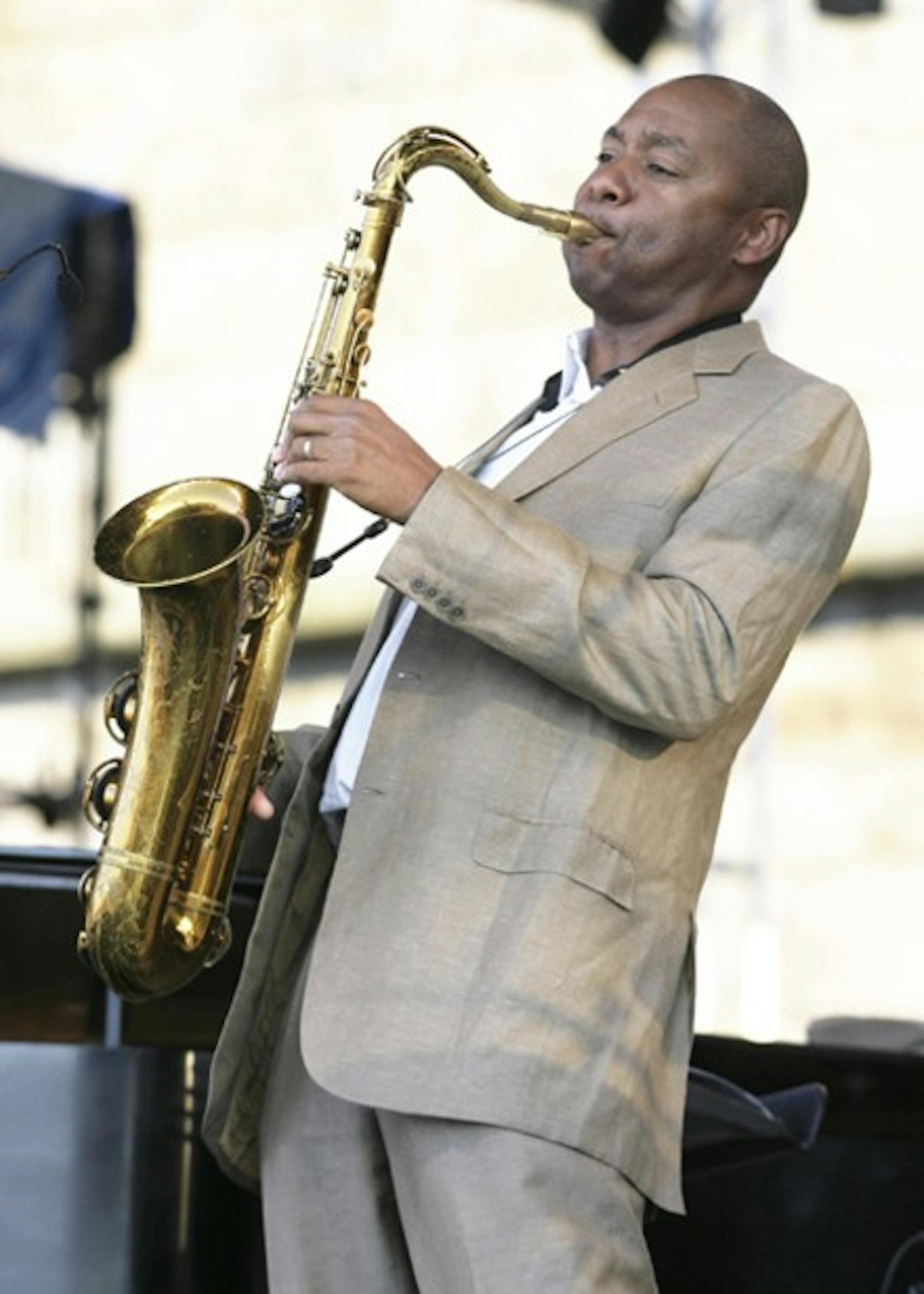The group's dynamic five-song set, during which Marsalis switched between tenor and soprano saxophones, left onlookers in a synchronized toe-tapping frenzy for one and a half hours.
The quartet, which also featured pianist Joey Calderazzo, drummer Jeff "Tain" Watts and bassist Eric Revis, led off with a piece written by Watts, during which the drummer captivated his listeners with a scintillating solo that Meredith Gringer '09 described as "mind-blowing."
Andrew Dete '09 echoed Gringer's sentiments. "I really enjoyed the dynamic energy the drummer brought to the stage," he said.
From there, the quartet slowed things down with "Gloomy Sunday," written by Hungarian composer Rezso Seress. Marsalis explained that the song came to be known as the "Hungarian Suicide Song" when it first came to the United States in the 1930s, arising from a legend that the song inspired hundreds of suicides in the country of its origination, where sheet music for the song was found in the residences of those who had taken their own lives. Its melancholy air drew famed jazz singer Billie Holiday to the song (translated into English by Sam Lewis), which has since been a cherished favorite of musicians.
After playing his trembling rendition, Marsalis went on to explain how a pianist friend of his from Budapest repudiated the myth, claiming that one of the song's co-authors was a policeman who would plant the sheet music in the house of every suicide victim he entered. The story brought the crowd to laughter, as did each of Marsalis' charismatic verbal interludes.
"The concert was great. Branford Marsalis had great energy and his anecdotes between songs were really funny!" Gringer said.
The entertaining tale was followed by the quartet's interpretation of Thelonious Monk's "Monk's Dream." This was Calderazzo's time to shine, as the pianist impressed with a dexterous solo that incorporated the theme from "Well You Needn't," another of Monk's popular compositions. The notes of Marsalis' solo darted around the scales with a fluidity and originality that demonstrated why the saxophonist is among the most elite jazz musicians of our time.
After the rendition of "Monk's Dream," the group's front man, pianist and drummer moved backstage and allowed bass player Eric Revis to display his unusual playing style for all to see. The bassist's hands jumped from the top to the bottom of the fret of his instrument, matched by his body's movement.
The energetic exhibition was an unexpected and invigorating intermission from quartet-style playing.
Marsalis re-emerged with soprano sax in hand, followed by Watts and Calderazzo, to play one of his original compositions. Before diving into "Fate," from the group's most recent album, "Braggtown," Marsalis once again engaged the audience.
"What's the name of your mascot here?" Marsalis asked.
After faint cries of "Keggy" and "The Big Green," Marsalis explained that Watts likes to count into the song with something germane to its audience -- a tactic stemming from the fact that the song "Fate" remained unnamed for several of its first performances. When the quartet toured in Japan, where they recounted frequented coming upon "chicken balls" in restaurants, Watts would count off "a-one, two, chicken ball, four...."
The set ended to a standing applause, which brought the group back on stage for a rousing version of the Duke Ellington classic "It Don't Mean a Thing," again bringing the audience to its feet.
"It's my favorite show I've seen at the [Hopkins Center], and I've seen a lot of shows," Rembert Browne '09 said.




